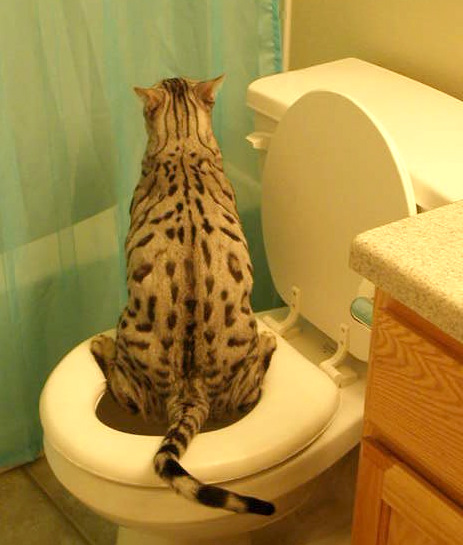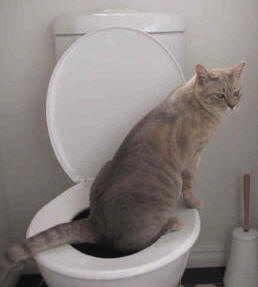Don't Flush Cat Poop Down Your Toilet - Maintain Your House's Pipe System
Don't Flush Cat Poop Down Your Toilet - Maintain Your House's Pipe System
Blog Article
We have stumbled on this post on How to Dispose of Cat Poop and Litter Without Plastic Bags down the page on the internet and accepted it made sense to discuss it with you on my blog.

Intro
As feline owners, it's necessary to bear in mind just how we deal with our feline pals' waste. While it may seem practical to flush cat poop down the toilet, this practice can have detrimental consequences for both the setting and human wellness.
Alternatives to Flushing
Luckily, there are much safer and much more liable methods to get rid of cat poop. Take into consideration the complying with alternatives:
1. Scoop and Dispose in Trash
One of the most typical approach of taking care of feline poop is to scoop it right into a naturally degradable bag and toss it in the trash. Make certain to utilize a dedicated trash inside story and deal with the waste immediately.
2. Use Biodegradable Litter
Choose eco-friendly pet cat litter made from materials such as corn or wheat. These trashes are eco-friendly and can be securely dealt with in the trash.
3. Hide in the Yard
If you have a backyard, consider hiding cat waste in a marked area far from vegetable gardens and water sources. Make certain to dig deep enough to prevent contamination of groundwater.
4. Set Up a Pet Waste Disposal System
Buy a pet waste disposal system especially made for cat waste. These systems use enzymes to break down the waste, decreasing smell and ecological influence.
Health Risks
Along with ecological problems, flushing cat waste can additionally pose wellness dangers to people. Cat feces might consist of Toxoplasma gondii, a parasite that can cause toxoplasmosis-- a potentially severe health problem, especially for expecting females and people with weakened immune systems.
Ecological Impact
Flushing pet cat poop introduces unsafe microorganisms and bloodsuckers into the water, posing a significant risk to marine ecological communities. These impurities can negatively influence aquatic life and compromise water top quality.
Final thought
Liable animal possession extends beyond giving food and sanctuary-- it also includes correct waste management. By refraining from purging pet cat poop down the toilet and selecting different disposal approaches, we can minimize our environmental impact and secure human wellness.
Why Can’t I Flush Cat Poop?
It Spreads a Parasite
Cats are frequently infected with a parasite called toxoplasma gondii. The parasite causes an infection called toxoplasmosis. It is usually harmless to cats. The parasite only uses cat poop as a host for its eggs. Otherwise, the cat’s immune system usually keeps the infection at low enough levels to maintain its own health. But it does not stop the develop of eggs. These eggs are tiny and surprisingly tough. They may survive for a year before they begin to grow. But that’s the problem.
Our wastewater system is not designed to deal with toxoplasmosis eggs. Instead, most eggs will flush from your toilet into sewers and wastewater management plants. After the sewage is treated for many other harmful things in it, it is typically released into local rivers, lakes, or oceans. Here, the toxoplasmosis eggs can find new hosts, including starfish, crabs, otters, and many other wildlife. For many, this is a significant risk to their health. Toxoplasmosis can also end up infecting water sources that are important for agriculture, which means our deer, pigs, and sheep can get infected too.
Is There Risk to Humans?
There can be a risk to human life from flushing cat poop down the toilet. If you do so, the parasites from your cat’s poop can end up in shellfish, game animals, or livestock. If this meat is then served raw or undercooked, the people who eat it can get sick.
In fact, according to the CDC, 40 million people in the United States are infected with toxoplasma gondii. They get it from exposure to infected seafood, or from some kind of cat poop contamination, like drinking from a stream that is contaminated or touching anything that has come into contact with cat poop. That includes just cleaning a cat litter box.
Most people who get infected with these parasites will not develop any symptoms. However, for pregnant women or for those with compromised immune systems, the parasite can cause severe health problems.
How to Handle Cat Poop
The best way to handle cat poop is actually to clean the box more often. The eggs that the parasite sheds will not become active until one to five days after the cat poops. That means that if you clean daily, you’re much less likely to come into direct contact with infectious eggs.
That said, always dispose of cat poop in the garbage and not down the toilet. Wash your hands before and after you clean the litter box, and bring the bag of poop right outside to your garbage bins.
https://trenchlesssolutionsusa.com/why-cant-i-flush-cat-poop/

As a devoted person who reads on Can You Flush Cat Poo or Litter Down the Toilet?, I assumed sharing that excerpt was a good thing. Those who liked our blog entry please make sure you remember to pass it around. Thank you for your time. Kindly stop by our website back soon.
Click Here Report this page